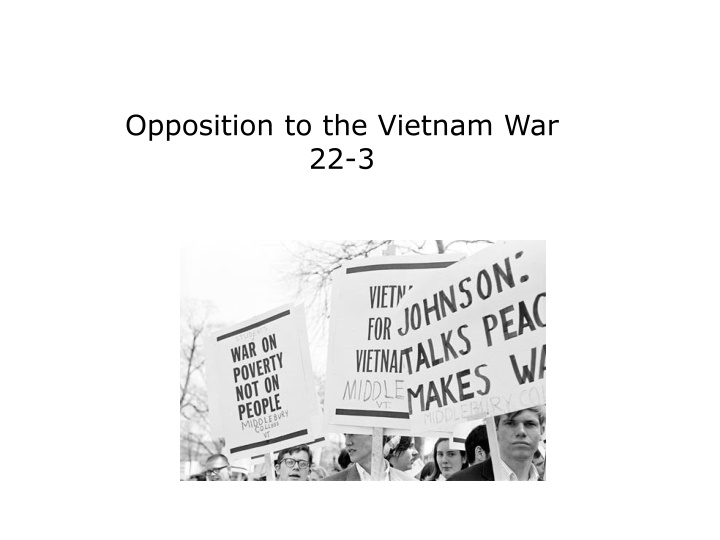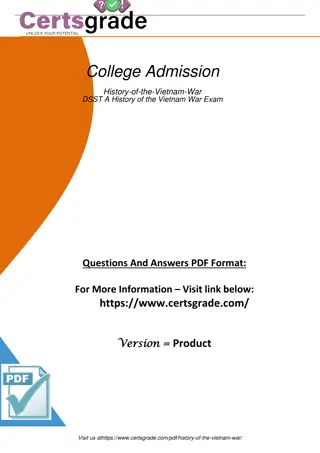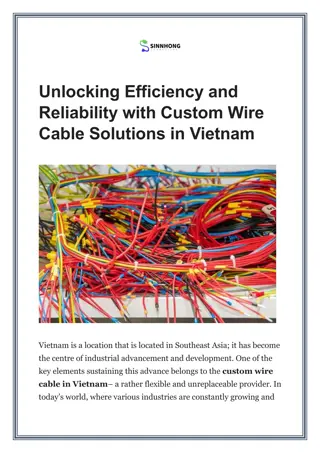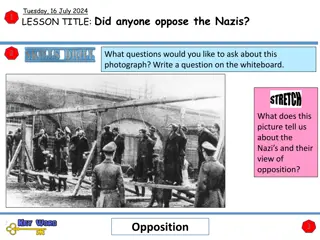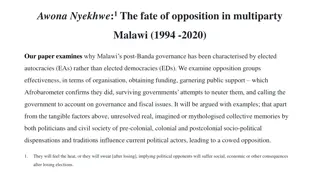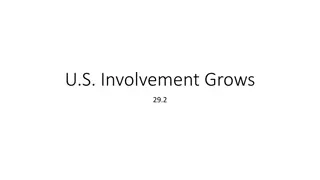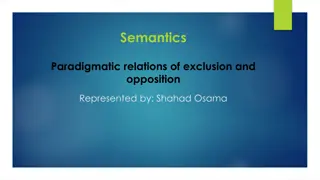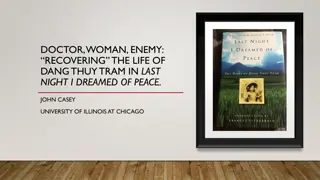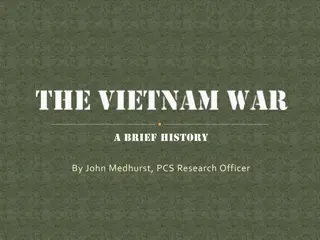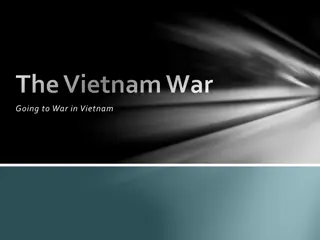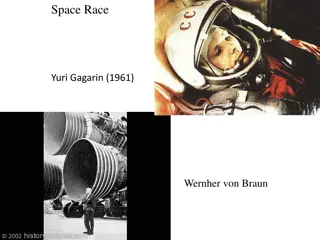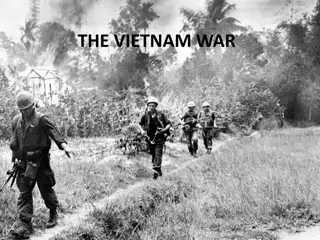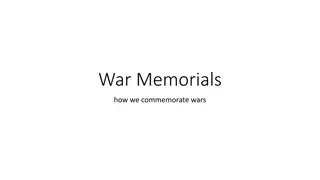Opposition to the Vietnam War: A Closer Look
The Vietnam War sparked significant opposition, with key factors including the draft policy, disproportionate African American involvement, and student activism. The credibility gap between the government and the public worsened as casualties mounted. Resistance to the war led to policy changes, such as the introduction of a draft lottery system in 1969. Antiwar sentiments spread across various segments of society, including students and working-class individuals.
Download Presentation

Please find below an Image/Link to download the presentation.
The content on the website is provided AS IS for your information and personal use only. It may not be sold, licensed, or shared on other websites without obtaining consent from the author.If you encounter any issues during the download, it is possible that the publisher has removed the file from their server.
You are allowed to download the files provided on this website for personal or commercial use, subject to the condition that they are used lawfully. All files are the property of their respective owners.
The content on the website is provided AS IS for your information and personal use only. It may not be sold, licensed, or shared on other websites without obtaining consent from the author.
E N D
Presentation Transcript
Terms and People draftee ayoung man who was drafted into military service Students for a Democratic Society (SDS) organization founded to fight racism but which later campaigned against the Vietnam War credibility gap the American public s growing distrust of statements made by the government during the Vietnam War
Terms and People (continued) Tet Offensive a coordinated assault, in January 1968, by the Vietcong and North Vietnamese on South Vietnamese cities and bases Eugene McCarthy the antiwar candidate for the Democratic Party presidential nomination in 1968 Robert Kennedy New York s Democratic senator and a candidate for the Democratic Party presidential nomination in 1968
By 1965 most of the troops sent to Vietnam were no longer volunteers, they were draftees. Many people opposed the policies of the draft. More than 1.5 million young men were drafted during the Vietnam War. Many argued that the draft unfairly gave deferments to students. Most of the draftees came from a poor or working-class background.
The number of African Americans fighting in Vietnam was disproportionately high. African Americans were less likely than whites to become commissioned officers. They were more likely to serve, and die, in combat positions.
Inequalities in the draft led to widespread resistance against the war. In 1969, the draft was restructured to introduce a lottery system.
Students opposition to the war grew. Colleges and universities became centers of antiwar activism. Most student protesters were from the middle class; working-class students were less likely to protest against the war. Students for a Democratic Society (SDS) campaignedto end the war in Vietnam.
TV news showed the war s horrors. Beyond college campuses, more and more Americans also opposed the war. The difference between government reports and news stories created a credibility gap.
In November 1967, General Westmoreland addressed the nation s concerns about the war. He claimed the Vietcong had weakened and could no longer mount a major attack. However, in early 1968 the Vietcong and North Vietnamese launched the Tet Offensive.
The Tet Offensive attacked major cities and bases in South Vietnam, including the U.S. Embassy in Saigon. The fighting was fierce, but American and South Vietnamese forces eventually drove back the offensive.
After the Tet Offensive, U.S. military leaders became less certain that the war could end quickly. The new Secretary of Defense, Clark Clifford, recommended that President Johnson pursue peace, rather than victory, in Vietnam.
In 1968, Johnson shocked the nation by announcing that he would not run for another term as President. Democratic Senator Eugene McCarthy, who opposed the war, made a strong showing in the New Hampshire primary. Robert Kennedy, a Democratic Senator from New York, also announced his candidacy.
The optimism of the early 1968 campaigns ended as violence stunned the nation. In April, Rev. Martin Luther King, Jr. was assassinated in Memphis. Senator Robert Kennedy was assassinated in June, just after he d won the California Democratic primary. Police used rough tactics to break up student protests outside the Democratic Convention in Chicago.
Republicans held a more peaceful convention, choosing Richard M. Nixon as their presidential candidate. Eventually the Democrats chose Hubert Humphrey, Johnson s Vice President, as their presidential candidate.
Nixon won the 1968 election. He called for peace with honor in Vietnam. He appealed to the silent majority people who were not protesting. He benefited because Democrats were split between Humphrey and George Wallace, a third-party candidate from the South.
